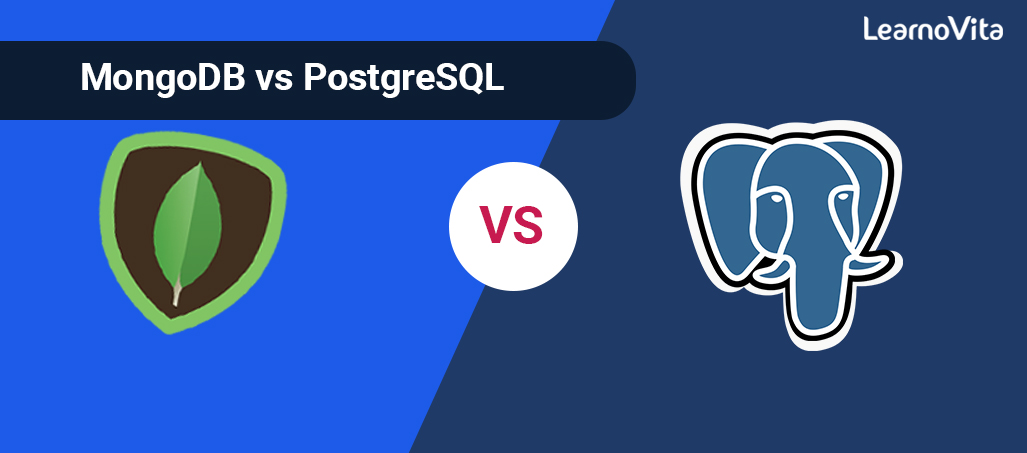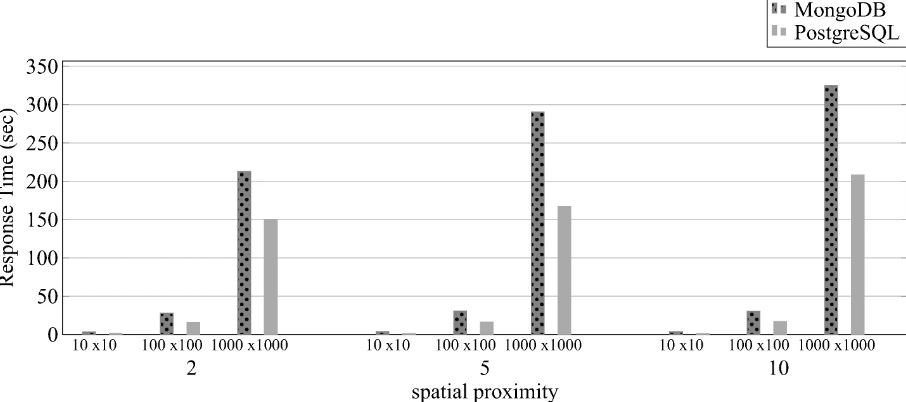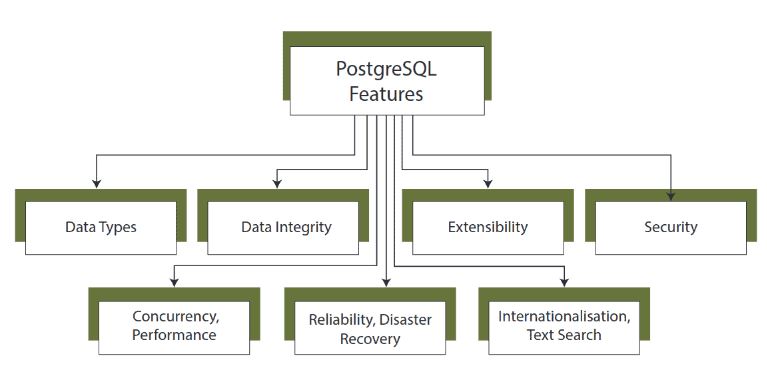- What does the Yield keyword do and How to use Yield in python ? [ OverView ]
- Sorting data in MongoDB ? : A Complete Guide For Beginners [ OverView ]
- What are Data Modelling tools? : The Ultimate Guide
- SQL Server Certification 2016 | A Definitive Guide
- What is Database Administration | Database Management Essentials | A Complete Guide For Beginners
- What is MongoDB and its Queries | All you need to know [ OverView ]
- What is Database Management | Benefits of DBMS | Expert’s Top Picks
- MongoDB Vs MySQL | Know Their Differences and Which Should You Learn?
- MongoDB vs DynamoDB | Know Their Differences and Which Should You Learn?
- MongoDB vs PostgreSQL | Know Their Differences and Which Should You Learn?
- What is a Database? : A Complete Guide with Best Practices
- What is Data Modelling? : All you need to know [ OverView ]
- A Complete Guide on SQL Optimization Techniques
- What is MongoDB Port? : Free Guide Tutorial & REAL-TIME Examples
- What is MongoDB? : A Complete Guide with Best Practices
- What is a Transaction Processing System? REAL-TIME Examples
- MongoDB Commands Cheat Sheet
- How To Become a Data Modeler?
- How To Start a Career in Database Administration?
- Types Of SQL Indexes
- DBMS vs RDBMS vs NoSQL
- Cassandra Vs MongoDB
- Different types of Joins in SQL Server
- What is SSRS?
- Schema in SQL
- What does the Yield keyword do and How to use Yield in python ? [ OverView ]
- Sorting data in MongoDB ? : A Complete Guide For Beginners [ OverView ]
- What are Data Modelling tools? : The Ultimate Guide
- SQL Server Certification 2016 | A Definitive Guide
- What is Database Administration | Database Management Essentials | A Complete Guide For Beginners
- What is MongoDB and its Queries | All you need to know [ OverView ]
- What is Database Management | Benefits of DBMS | Expert’s Top Picks
- MongoDB Vs MySQL | Know Their Differences and Which Should You Learn?
- MongoDB vs DynamoDB | Know Their Differences and Which Should You Learn?
- MongoDB vs PostgreSQL | Know Their Differences and Which Should You Learn?
- What is a Database? : A Complete Guide with Best Practices
- What is Data Modelling? : All you need to know [ OverView ]
- A Complete Guide on SQL Optimization Techniques
- What is MongoDB Port? : Free Guide Tutorial & REAL-TIME Examples
- What is MongoDB? : A Complete Guide with Best Practices
- What is a Transaction Processing System? REAL-TIME Examples
- MongoDB Commands Cheat Sheet
- How To Become a Data Modeler?
- How To Start a Career in Database Administration?
- Types Of SQL Indexes
- DBMS vs RDBMS vs NoSQL
- Cassandra Vs MongoDB
- Different types of Joins in SQL Server
- What is SSRS?
- Schema in SQL

MongoDB vs PostgreSQL | Know Their Differences and Which Should You Learn?
Last updated on 02nd Nov 2022, Artciles, Blog, Database
- In this article you will learn:
- 1.MongoDB versus PostgreSQL.
- 2.Postgresql versus MongoDB Overview.
- 3.PostgreSQL versus MongoDB Terminology and Concepts.
- 4.Contrasting the MongoDB Query Language with SQL.
- 5.Settling on the Decision: MongoDB or PostgreSQL?.
- 6.Conclusion.
MongoDB versus PostgreSQL:
MongoDB is a major archive information base. It is based on the conveyed, scale-out engineering and has turned into thorough cloud-based stage for overseeing and conveying information to the applications. MongoDB handles a value-based, functional, and insightful jobs at scale. Assuming interests are an ideal opportunity to the showcase, engineer usefulness, supporting DevOps and nimble procedures, and building stuff that scales without a functional vaulting, MongoDB best approach.PostgreSQL is an unshakable, open source, endeavor grade a SQL data set that has been extending its abilities for a long time. All that could at any point need from the social information base is available in a PostgreSQL, which depends on scale-up design. Assuming an interests are similarity, presenting large number of questions from the many tables, exploiting existing SQL abilities, and stretching SQL to edge, PostgreSQL will work effectively.
Postgresql versus MongoDB Overview:
- Assuming toward the start of an improvement project and are trying to sort out a requirements and information model by an utilizing a spry advancement process, MongoDB will sparkle since engineers can reshape an information all alone, when they need to a. MongoDB empowers to oversee information of any design, not simply plain the constructions characterized ahead of time.
- Assuming supporting an application realize should scale as far as a volume of traffic or size of information (or both) and that should be conveyed across the districts for information region or information sway, MongoDB’s scale-out design will address the issues naturally.
- Assuming need a multi-cloud data set that works a same way in every open cloud, can store client information in a explicit geographic districts, and backing most recent serverless and portable improvement standards, MongoDB Atlas is an ideal decision.
- Assuming SQL shop and presenting another worldview will cost a more than some other advantages referenced will balance, PostgreSQL is a decision that will probably address each one of issues.
- Assuming need a social information base that will run a complex SQL inquiries and work with the loads of existing applications dependent on an even, social information model, PostgreSQL will do a work.
- To stretch SQL to an edge by utilizing progressed methods for the ordering, putting away and looking through a various organized information types, making client characterized capacities in the assortment of dialects, and tuning the data set as far as possible, and probably will actually want to go further with a PostgreSQL than some other RDBMS.
- Thus, presently that rest has been fulfilled, the patient can make more profound jump into the MongoDB, then, at that point, PostgreSQL, and afterward an examination.

MongoDB: The Scalable Document Database That Has Become Data Platform:
- The Beauty of a Document Model MongoDB’s record information model guides normally to objects in the application code, simplifying it for designers to learn and utilize.
- Reports enable to address various leveled connections to save exhibits and other more complicated constructions without any problem. JSON records can save information in fields, as exhibits, or even as a settled sub-archives. Thus, related data can be put away together for fast question access through a rich and expressive MongoDB inquiry language.
- MongoDB stores an information as records in the double portrayal called BSON (Binary JSON). Fields can change from a one record to another; there is no compelling reason to proclaim construction of reports to a framework – archives are self-portraying.
- Assuming the another field should be added to report, then, at that point, field can be made without an influencing any remaining records in the assortment, without refreshing focal framework index, refreshing an ORM, and without taking framework disconnected.
- Alternatively, a mapping approval can be utilized to uphold an information administration powers over each assortment.
PostgreSQL versus MongoDB Terminology and Concepts:
i. PostgreSQL.
ii. MongoDB.
iii. Corrosive Transactions.
iv. Table.
- MongoDB permits to store information in a practically any construction, and each field – even those profoundly settled in a subdocuments and clusters – can be recorded and also effectively looked at.
- MongoDB adds a components to archive model and question motor to deal with the both geospatial and time series labeling of information. This grows kind of inquiries and investigations that can be performed on the data set.
- BSON incorporates an information types not present in a JSON information (e.g., datetime, int, long, date, drifting point, and decimal128, and byte exhibit) offering a type-severe dealing with for the quite some time types rather than a general “number” type.
- Outline approval empowers to apply an administration and information quality controls to blueprint.
- Corrosive Transactions for a Changes to Many Documents One of the most remarkable elements of a social data sets that make a composing applications simpler is ACID exchanges. The subtleties of how an ACID exchanges are characterized and carried out a fill numerous software engineering course readings. A large part of conversation in a software engineering domain is about confinement levels in a data set exchanges. PostgreSQL defaults to a read submitted disengagement level, and permits clients to the adjust that to serializable confinement level.
- The significant thing to recall is that exchanges a permit many changes to data set to be made in the gathering or moved back in the gathering.
- In social information base, the information being referred to would be displayed across the isolated parent-youngster tables in the plain composition. This implies that a refreshing every one of the records without moment’s delay would need an exchange.
- It could be said, record information bases make a some simpler memories executing exchanges since they are group information in an archive and composing and perusing a report is the nuclear activity so it needn’t bother with the multi-record exchange. At least one field might be written in solitary activity, including updates to various subdocuments and components of an exhibit. MongoDB ensures a total detachment as a record is refreshed. Any blunders will be trigger the update activity to reign in, returning change and guaranteeing that customers get a reliable perspective on an archive.
- MongoDB additionally upholds data set exchanges across more archives, so lumps of related changes can be submitted or moved back collectively. With its a multi-archive exchanges capacity, MongoDB is one of only handful of exceptional information bases to the consolidate ACID certifications of a conventional social data sets with a speed, adaptability, and force of record model.
- According to software engineer point of a view, exchanges in MongoDB feel very much like an exchanges designers are now acquainted with in PostgreSQL. Exchanges in a MongoDB are the multi-articulation, with the comparative punctuation (e.g., starttransaction and committransaction) with a depiction isolation,and are thus simple for anybody with an earlier exchange insight to add to the any application.

Settling on a Decision: MongoDB or PostgreSQL?
- Abandoning SQL implies a leaving an enormous environment of an innovation that as of now utilizes SQL. That is simpler to do assuming are dealing with the another application, or plan on a modernizing a current one.
- Heaps of an information the board and BI apparatuses depend on a SQL and programatically produce a complex SQL explanations to get the perfect assortment of an information from the data set. PostgreSQL does more well in such settings since it is hearty, venture grade execution that is perceived by a numerous engineers.
- Additionally, assuming have a level, even information model that won’t change all time and doesn’t have to a scale-out, social data sets and SQL can be amazing decision.
- Yet, an apparent advantages of a SQL have costs that should be thought of. The disadvantage of a PostgreSQL contrasted with the MongoDB is that it depends on a social information models that are be antagonistic to the information structures designers work with in a code, and that should be characterized ahead of a time, easing back progress at a whatever point prerequisites change.
- MongoDB upholds a fast, iterative pattern of an advancement so well due to way that an archive information base transforms information into code heavily influenced by a designers. This speed is disturbed by an idea of inflexible, even information models utilized in a social data sets, which generally should be reshaped by a data set executives through intermediated cycle, which eases back whole course of improvement. Such bottlenecks can be discourage advancement.
- At a point when an application goes a live, PostgreSQL clients should be prepared to the quarrel over adaptability. PostgreSQL utilizes the scale-up methodology. This implies that an eventually, for superior execution use cases, and might reach a stopping point or need to a redirect assets to tracking down an alternate ways of scaling by means of a reserving or denormalizing information or be utilizing different methodologies.
- In MongoDB such strategies are typically not needed in a light of the fact that versatility is inherent through a local sharding, empowering a level scale-out approach. Later an appropriately sharding a group, and can generally add more cases and continue to a scale out. MongoDB Atlas has wide multi-cloud, all around world mindful stage primed and ready, all completely overseen .
- PostgreSQL can be uphold replication yet further developed elements, for example, programmed failover should be upheld by a outsider items grown freely of an information base. Such a methodology is be more mind boggling and can work be increasingly slow flawlessly than MongoDB’s inassembled a self-mending abilities.
Conclusion :
MongoDB is a 130 times slower than Postgres because only join tactic available is to iterate an over employees, for each one performing a lookup in a department table. In a contrast, Postgres can use this a tactic (called iterative substitution) as well as merge join and hash join, and a Postgres query optimizer will pick an expected best strategy. MongoDB is constrained to asingle strategy. Whenever this is a single strategy is inferior, poor performance will be result.
